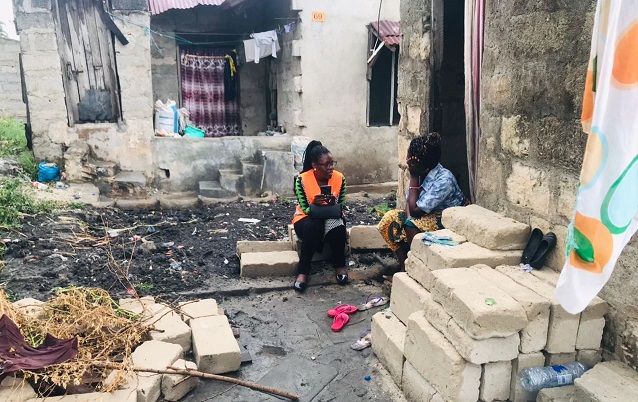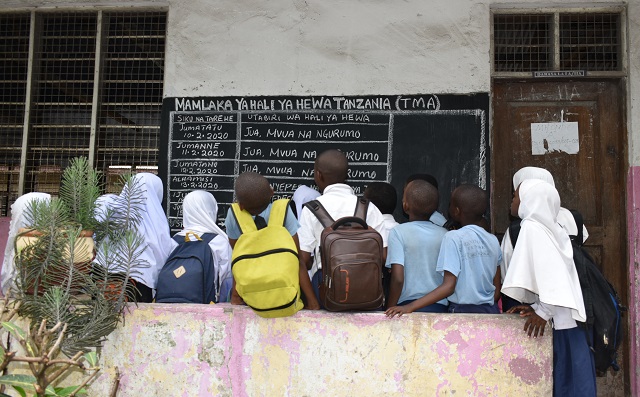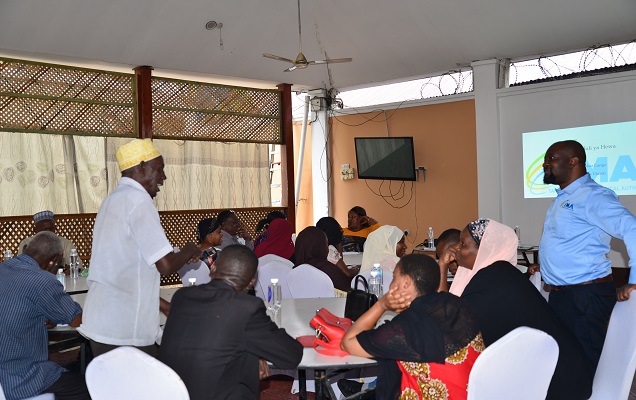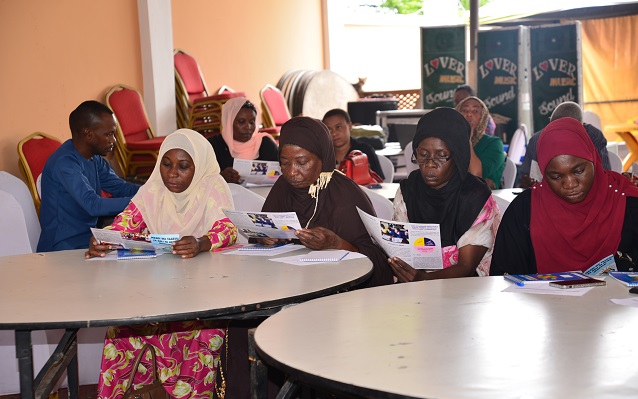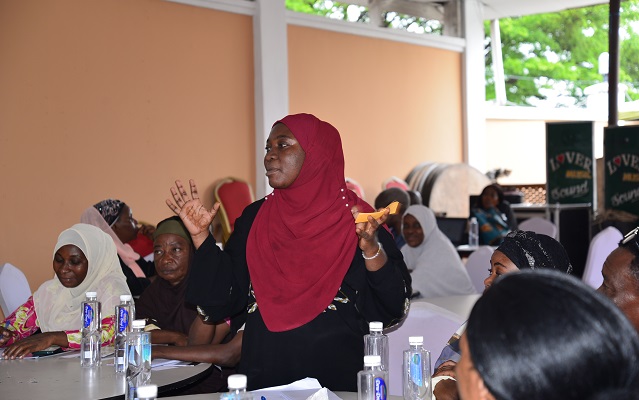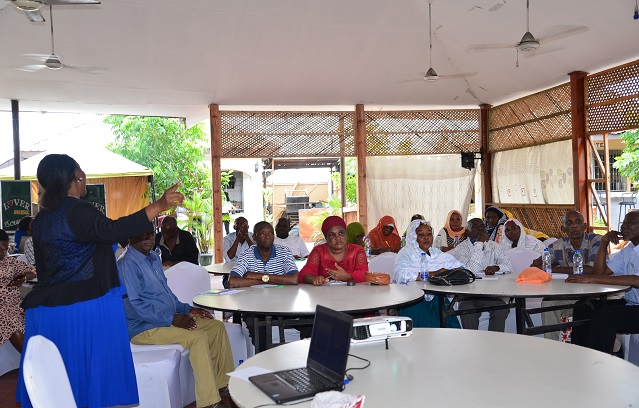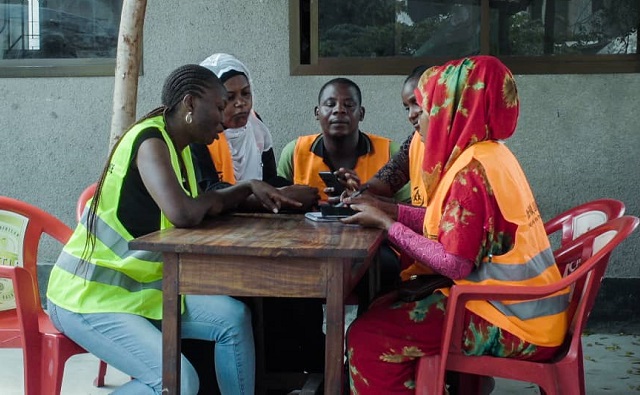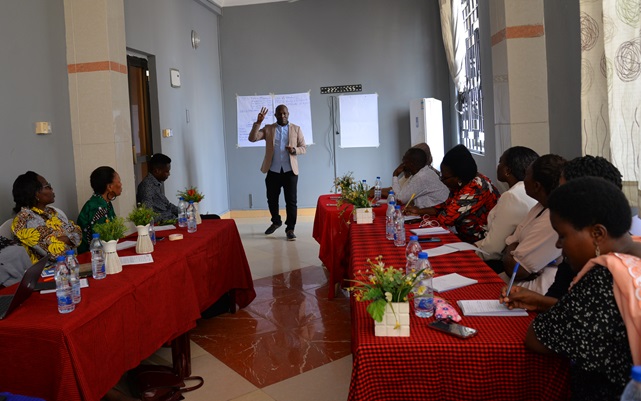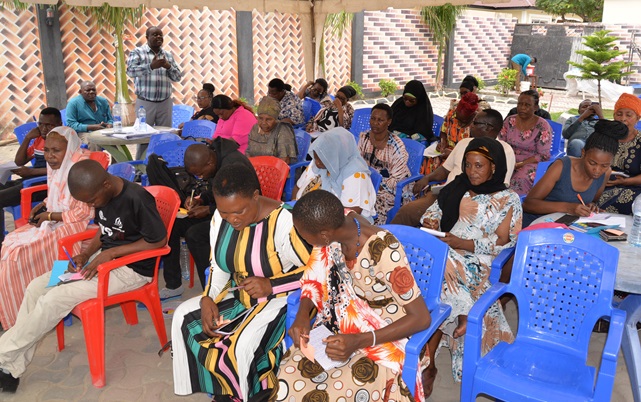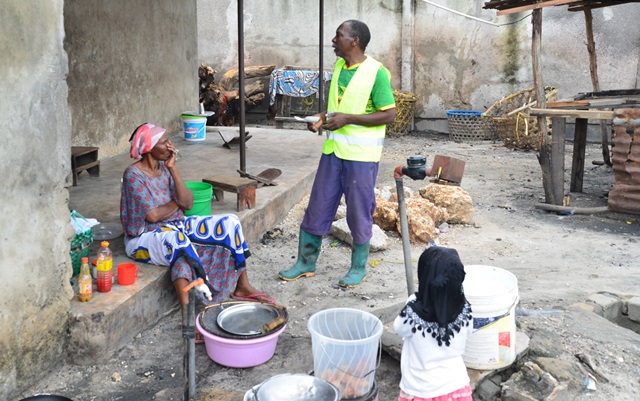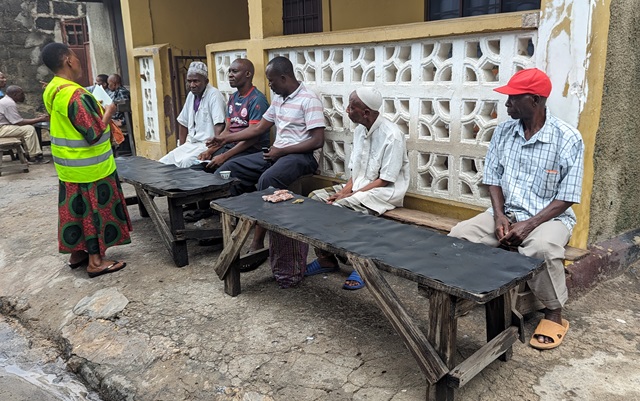Developing risk awareness through joint action for the middle Msimbazi river
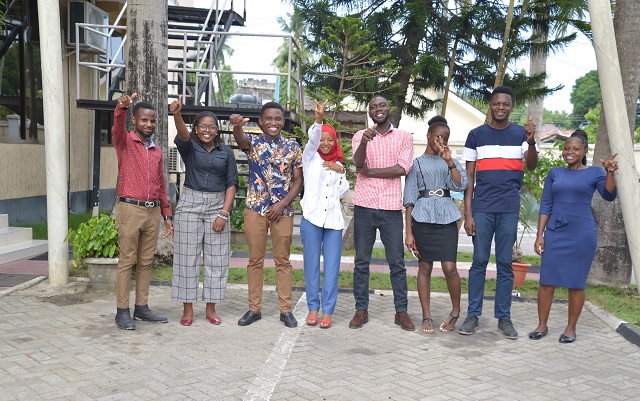
The target population of around 20,000 inhabitants of the Kombo settlement in Vingunguti district in Dar-es-Salaam typically lives in poor quality housing in low-income informal settlements, consistently located on hazardous land such as the flood-prone area of the Msimbazi river. Many inhabitants are unable to take actions to reduce the impacts of recurrent extreme weather events. The IKI Small Grants project aims to increase their adaptive capacity to climate change-induced extreme weather impacts. Through two pilot projects, the IKI Small Grants project seeks to make climate and weather information accessible to different stakeholders. The local population is invited to choose the respective pilots in a participatory process.
INITIAL SITUATION
Many of the residential sites along the Msimbazi river are informal settlements that generally lack basic services. Dar-es-Salaam is a fast-growing city which is urbanising rapidly. 70 per cent of its population resides in informal settlements, where infrastructure services are insufficient, such as drainage and sanitation. Increased flooding is related to the increase of sea-level rise of the Indian ocean and thus to climate change. This has led to frequent flooding affecting people in Dar-es-Salaam and their properties. At a community level, residents have low access to and understanding of weather information resulting in few people being able to take appropriate forecast and early warning-based action.
TARGET GROUP
The IKI Small Grants project targets primarily residents of informal settlements of Vingunguti district, where it works together with 100 facilitators of local communities and trains 30 community representatives. Thus, the project equips 4,600 direct and 3,000 indirect beneficiaries with improved climate and weather information.
APPROACH AND ACTIVITIES
The Centre for Community Initiatives (CCI) aims to increase the capacity of residents of Vingunguti informal communities to take action to mitigate the impact of severe weather on lives and property. Two pilot projects improve accessibility, understanding and mobilisation on the importance and use of weather and climate information.
The two weather and climate information pilots reach 4,600 direct and 3,000 indirect inhabitants. For this, the organisation conducts a scoping study, collects and analyses baseline data for climate and weather information, and makes a cost-benefit analysis. Subsequently, several trainings with around 180 participants from different stakeholders including community members enable the co-design of the project. Thereafter, the pilot solutions identified by the stakeholders are implemented in one community. As far as possible, key stakeholders are involved in the implementation process including the community members who are the beneficiaries of this project.
A school weather programme increases awareness, understanding and dissemination of weather and climate information to students and their teachers. Another project is the mobile community communication system. This includes a trained community team that receives the 5-day forecast and severe weather warnings from the Tanzania Meteorological Authority, translates the forecast and feeds a summary into an SMS distributor.
To maintain the pilots even after the end of the project, CCI recommends them to the local authorities during three bi-annual review meetings. CCI aims to get officials to provide the human and financial resources to maintain them.
The IKI Small Grants project further includes a public outreach awareness-raising session and exchange of information on the developing risk awareness through joint action (DARAJA) results. For this, the project designs a communication strategy to identify communication objectives and types of communication activity or audiences to reach as many inhabitants as possible.
LATEST PROJECT HIGHLIGHTS AND IMPACTS
- Baseline study reached 2,053 participants, covering 160 households (randomly selected through GIS system)
- 8 enumerators trained on GIS, data collection techniques, and report writing skills
- Participatory co-design workshop conducted with 30 participants from TMA, communities, local government, teachers from Kombo primary school, CSOs, and media.
- 2-days trainings with 60 community members conducted on weather and climate information
CAPACITY DEVELOPMENT
IKI Small Grants supports CCI in their organisational capacity development through multiple workshops, training, and mentorship activities to strengthen:
- monitoring, evaluation, and learning skills
- leadership & finance skills
ABOUT THE ORGANISATION
The Centre for Community Initiatives (CCI) is a non-profit organisation founded in 2004 by Tanzanian professionals based on a vision to help poor urban communities improve their quality of life through sustainable solutions. The organisation’s main mission is to support communities with skills that enable them to implement various development activities in their communities, including climate change, urban risk and resilience, climate and weather information for communities, shelter and housing development, and water and sanitation support.
PRESS AND MEDIA COVERAGE
more news you can find on the CCI Website:

